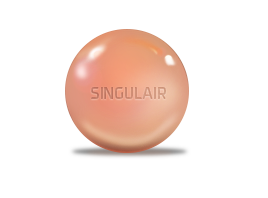

Singulair: General Information
Singulair is a medication used to treat asthma and allergic rhinitis (hay fever). It works by blocking leukotrienes, which are chemicals in the body that cause inflammation, swelling, and tightening of muscles around the airways.
Directions
Singulair is typically taken orally once daily in the evening, with or without food. Follow the dosage instructions provided by your doctor carefully. Do not crush, chew, or break the tablets. Swallow them whole with a full glass of water.
Precautions
Before taking Singulair, inform your doctor about any allergies you may have, especially to montelukast (the active ingredient in Singulair) or any other medications. Also, disclose your medical history, particularly if you have liver disease or phenylketonuria (PKU).
Contraindications
Singulair is contraindicated in patients with a known hypersensitivity to montelukast or any other ingredients in the formulation. It should not be used to treat acute asthma attacks or as a rescue medication.
Possible Side Effects
Common side effects of Singulair may include headache, stomach pain, heartburn, nausea, diarrhea, dizziness, tiredness, or stuffy nose. If any of these side effects persist or worsen, inform your doctor promptly. Additionally, seek medical attention if you experience symptoms of a severe allergic reaction, such as rash, itching/swelling (especially of the face/tongue/throat), severe dizziness, or trouble breathing.
Drug Interactions
Singulair may interact with certain medications, including phenobarbital, rifampin, and some anticonvulsants. Inform your doctor about all the medications you are currently taking, including prescription, over-the-counter, and herbal products, to avoid potential drug interactions.
Missed Dose
If you miss a dose of Singulair, take it as soon as you remember. However, if it is almost time for your next dose, skip the missed dose and resume your regular dosing schedule. Do not double the dose to catch up.
Overdose
In case of overdose, seek immediate medical attention or contact a poison control center. Overdose symptoms may include thirst, severe stomach pain, or seizures.
Storage
Store Singulair tablets at room temperature away from moisture and heat. Keep the tablets in their original blister pack until ready to use. Keep out of reach of children.
Description of Its Role in Treating Asthma and Allergic Rhinitis
Singulair plays a vital role in managing asthma by reducing inflammation in the airways and preventing asthma symptoms such as wheezing, coughing, and shortness of breath. Additionally, it helps control allergic rhinitis symptoms by blocking the action of leukotrienes, which are involved in allergic reactions such as sneezing, runny or stuffy nose, and itching of the nose or throat. By targeting both asthma and allergic rhinitis, Singulair provides comprehensive relief for patients with respiratory conditions triggered by inflammation and allergies.
